Personal Emotional

How much exercise is needed to see emotional benefits ?
Engaging in regular physical activity is not only beneficial for your physical health but also for your emotional well-being. The question of how much exercise is needed to see emotional benefits is a common one, and the answer may vary depending on individual factors such as age, fitness level, and personal goals. However, there are some general guidelines that can help you determine the amount of exercise needed to experience emotional benefits. There are various types of exercise that you can incorporate into your routine, including aerobic exercise, strength training, flexibility exercises, and balance exercises. Regular exercise has been shown to have numerous emotional benefits, including reduced stress and anxiety, improved mood, better sleep, and increased self-esteem. According to the American Heart Association, the following guidelines are recommended for adults to achieve significant health benefits: - At least 150 minutes per week of moderate-intensity aerobic activity or 75 minutes per week of vigorous-intensity aerobic activity. - At least two days per week of strength training exercises involving all major muscle groups. - At least two to three days per week of flexibility exercises to maintain range of motion and prevent injury. - As needed, particularly for older adults or those with balance issues. It's important to note that individual needs may vary, and it's essential to listen to your body and adjust your exercise routine accordingly to ensure you're getting the most out of your workouts.

How can women develop their emotional intelligence in the workplace ?
Emotional intelligence (EQ) is a crucial skill for success in the workplace, especially for women who often face unique challenges and biases. Developing EQ can help women navigate complex social dynamics, build strong relationships, and lead effectively. Here's how they can enhance their emotional intelligence: Self-awareness involves understanding your own emotions and practicing self-reflection. Self-regulation means managing your emotions and staying calm under pressure. Motivation includes setting goals and finding sources of inspiration. Empathy involves listening actively and showing compassion. Social skills entail improving communication and building relationships. Continuous learning means seeking feedback and engaging in training. By focusing on these key areas, women can enhance their ability to navigate the workplace effectively. Remember that developing EQ is an ongoing process that requires practice, patience, and a commitment to personal growth.

What is the significance of emotional intelligence in educational psychology ?
Emotional intelligence (EI) plays a pivotal role in educational psychology, impacting student success and well-being. Key aspects of EI include self-awareness, self-regulation, motivation, empathy, and social skills. For students, high EI correlates with better academic performance, social skill development, mental health, and resilience. For teachers, it enhances classroom management, instructional strategies, student relationships, and professional development. Schools benefit from a positive culture, effective intervention programs, and increased parental involvement when focusing on EI. Integrating EI into education fosters a generation equipped for academic, emotional, and social success.

How can we effectively communicate the urgency of climate action to those who identify as climate skeptics ?
Effective strategies for communicating climate urgency to skeptics include an educational approach, emotional appeal, and social influence. It's crucial to understand their concerns about scientific data, economic impact, and personal benefit. Providing evidence-based information, highlighting economic benefits, and emphasizing personal impact can help address these concerns. Using personal stories, visual aids, and connecting to values can create an emotional appeal. Engaging social networks, leveraging trusted figures, and creating a sense of urgency through social influence are also effective strategies. Patience, open-mindedness, and persistence are essential in fostering a sense of urgency among this audience.

How does exercise influence mood and emotional stability ?
Exercise has a positive impact on mood and emotional stability by releasing endorphins, reducing stress hormones, enhancing resilience, promoting mindfulness, and providing a sense of achievement. Incorporating regular exercise into your lifestyle can lead to better mental health and overall well-being.
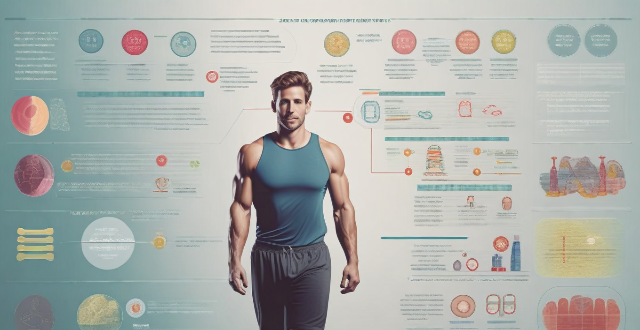
How does sports contribute to personal growth ?
Sports significantly contribute to personal growth by enhancing physical fitness, mental agility, emotional well-being, and life skills such as resilience, leadership, and adaptability. Regular participation not only maintains a healthy weight but also fosters discipline, self-esteem, and teamwork. Overall, sports are instrumental in developing well-rounded individuals capable of facing life's challenges with confidence and competence.
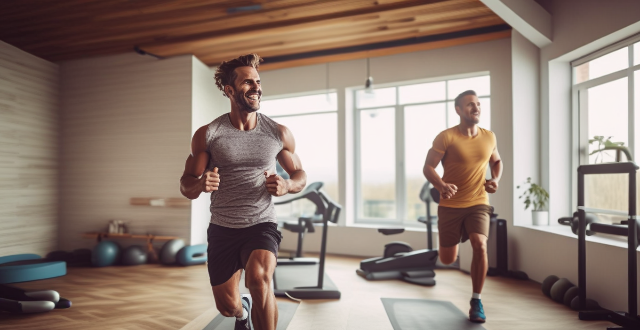
Are there specific workout routines designed for emotional stability ?
Emotional stability is an important aspect of overall well-being, and exercise can play a significant role in achieving it. Cardiovascular exercises like running, cycling, swimming, and dancing increase heart rate and blood flow, reducing stress and anxiety levels while releasing endorphins that improve mood. Strength training such as weightlifting or resistance band exercises build muscle strength and endurance, improving self-esteem and confidence while reducing symptoms of anxiety and depression by promoting the growth of new brain cells and increasing neurotransmitter levels. Yoga and meditation practices focus on mindfulness, breathing techniques, and relaxation, reducing stress levels and improving cognitive function, memory, and attention span. Incorporating these activities into your fitness routine can have a positive impact on your emotional stability and overall well-being.
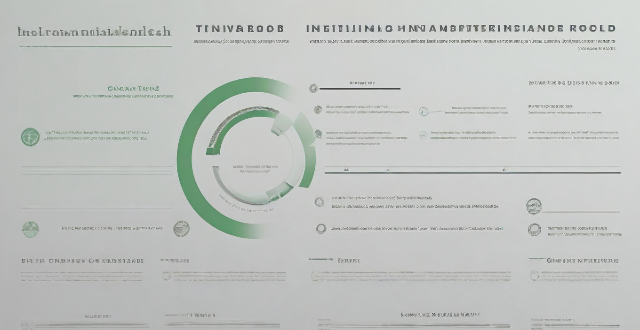
What is the importance of emotional intelligence in sports leadership ?
Emotional intelligence is crucial for sports leadership, including empathy, communication skills, decision-making, conflict resolution, and motivation. Leaders with high EI can create a positive environment, make informed decisions, and inspire their team members to achieve success.

How do sports help in the emotional regulation of teenagers ?
Adolescence is a period of significant emotional, physical, and psychological changes. Sports can play a crucial role in helping teenagers regulate their emotions effectively by promoting physical health, developing social skills, building self-esteem and confidence, providing an outlet for emotions, and teaching discipline and responsibility. Encouraging teenagers to participate in sports is an investment in their overall wellbeing and future success.

Can sports be a tool for personal growth and self-discovery ?
Sports offer numerous opportunities for personal growth and self-discovery, including building resilience and determination, developing teamwork and communication skills, enhancing self-discipline, promoting emotional health, discovering passion and purpose, and cultivating mindfulness and focus.

How does team sports contribute to personal growth and development ?
Team sports contribute significantly to personal growth and development by helping individuals develop various skills, qualities, and values essential for success in all aspects of life. These include communication skills, leadership abilities, teamwork and collaboration, discipline and responsibility, goal setting and achievement, emotional intelligence, and time management. Participating in team sports can help individuals become well-rounded individuals who are prepared for whatever challenges lie ahead.

What is the relationship between exercise, sleep quality, and emotional well-being ?
The text explores the interconnectedness of exercise, sleep quality, and emotional well-being. It outlines how physical activity enhances mood through endorphin release and long-term health benefits. Sleep quality is crucial for emotional processing and resilience against stress. Mutual benefits exist between exercise and sleep, with each improving the other. A holistic approach to health includes attention to all three components for optimal well-being.

How can sports help individuals develop leadership skills and personal growth ?
Participating in sports can help individuals develop leadership skills and foster personal growth by enhancing goal-setting, teamwork, resilience, decision-making under pressure, accountability, confidence building, discipline, physical health, emotional intelligence, and social interaction.

In what ways do sports help with emotional regulation in children ?
Engaging in sports can significantly aid children in developing emotional regulation skills by promoting stress reduction, enhancing self-esteem, developing resilience, encouraging teamwork and social interaction, teaching discipline and self-control, providing an outlet for energy, and promoting mindfulness.

Is there a difference in emotional management between casual and professional athletes ?
The text is a topic summary about emotional management in sports, focusing on the differences between casual and professional athletes. The article outlines key points related to self-awareness, self-regulation, and motivation for both groups. It notes that while both types of athletes must manage their emotions, professional athletes often have more structured approaches and greater motivation due to the high stakes involved in their careers. Casual athletes may benefit from adopting some of the emotional management strategies used by professionals but generally face fewer consequences if they fail to do so.

How do women handle conflicts in personal and professional relationships ?
Handling conflicts is an integral part of both personal and professional relationships. Women, being inherently empathetic and nurturing, often approach conflict resolution differently than men. Here's a detailed insight into how women handle conflicts in personal and professional relationships: In Personal Relationships: Women tend to be active listeners, paying close attention to the other person's viewpoint before responding. They make an effort to understand the emotions behind the words. By putting themselves in the other person's shoes, women can better comprehend their feelings and concerns, leading to more effective communication. Using "I" statements rather than "You" accusations helps reduce defensiveness and promotes a constructive dialogue. Women often look for solutions that satisfy both parties, aiming for mutual satisfaction rather than victory. Recognizing and managing emotions during conflicts allows women to navigate disagreements with less tension. Preserving the relationship often takes precedence over being right, leading to a willingness to let go of minor issues. Sometimes, involving a neutral third party can help mediate disputes and find equitable solutions. Women may use their negotiation skills to find common ground and resolve conflicts amicably. In the workplace, women might express disagreements diplomatically to maintain collegiality and avoid damaging work relationships. Addressing conflicts privately can prevent public embarrassment and allow for a more honest exchange. Women often emphasize team harmony and collaboration, working towards a shared goal despite personal differences. Offering constructive criticism can help improve performance without demoralizing colleagues. Encouraging all voices to be heard can reduce the likelihood of conflicts stemming from feelings of exclusion. Promoting understanding among diverse groups can lead to fewer misunderstandings and conflicts. Many women adopt a transformational leadership style, inspiring and motivating others towards a common vision. Implementing clear strategies for resolving conflicts can create a more positive work environment. Recognizing their own emotions allows women to manage them effectively during professional conflicts. Being attuned to colleagues' emotions can facilitate better interactions and reduce misunderstandings. Women handle conflicts in personal and professional relationships with a blend of empathy, communication skills, emotional intelligence, and a focus on relationships. While each woman's approach may vary based on her personality and circumstances, these traits generally guide their conflict resolution strategies.

Does exercise influence emotional regulation and mental well-being, which in turn affects cognitive processes ?
The article explores the relationship between exercise, emotional regulation, mental well-being, and cognitive processes. It suggests that regular physical activity can positively impact emotional regulation by reducing stress levels, improving self-esteem, and providing a healthy outlet for negative emotions. Exercise also contributes to improved mental well-being by alleviating symptoms of depression and anxiety, promoting relaxation, and providing opportunities for social interaction. These factors, in turn, influence cognitive processes such as attention, memory, problem solving, and decision making. Overall, the article concludes that incorporating exercise into daily routines can have numerous benefits for overall health and well-being.

Can exercise be a substitute for medication in treating some forms of emotional distress ?
This article explores the potential benefits of exercise in treating emotional distress, such as anxiety and depression, and discusses whether it can be a substitute for medication. While exercise has numerous benefits for mental health, including stress reduction and improved sleep quality, it may not be suitable for everyone or replace medication in all cases. Factors such as symptom severity and individual differences should be considered when determining the best approach to managing emotional distress. Exercise should be viewed as part of a comprehensive treatment plan that includes medical care, therapy, and lifestyle changes tailored to the individual's needs.

How do celebrities balance their professional and personal life to stay healthy ?
Balancing professional demands with personal well-being is a common challenge faced by celebrities. To maintain this equilibrium, they prioritize self-care through practices like meditation and therapy for mental health, and regular exercise and healthy eating for physical health. Setting boundaries, such as scheduled downtime and limiting public appearances, helps in separating work from personal life. Digital detoxes further aid in reducing stress from online interactions. Building a supportive network of family, friends, and professionals assists in managing daily stressors and offers emotional support. Pursuing hobbies and interests outside of their fame provides additional fulfillment. By implementing these strategies, celebrities can navigate the challenges of their profession while maintaining their health and well-being.

How do celebrities use social media to promote their personal brand ?
Celebrities use social media to promote their personal brand by being authentic, engaging with fans, collaborating with others, maintaining consistent brand messaging, and promoting their own projects.
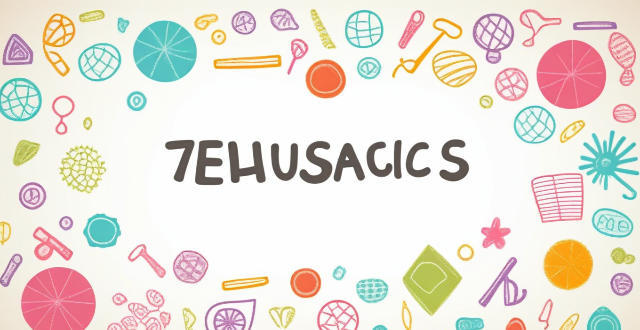
What ethical considerations should be taken into account when reporting on athletes' personal lives ?
The text discusses ethical considerations in reporting athletes' personal lives, emphasizing respect for privacy, accuracy and fairness, consent and participation, handling sensitive topics with care, public interest, age and maturity, cultural sensitivity, and aftermath support. It suggests that journalists should avoid intrusion, verify information, ask for permission, handle sensitive topics with care, consider age and maturity, recognize cultural differences, provide resources for support, and follow up responsibly. The text concludes that reporting on athletes' personal lives requires a nuanced approach that prioritizes ethics over sensationalism to maintain integrity while informing the public about the human aspects of sports figures they admire.

How can I distinguish myself from others with a unique personal image ?
**How to Establish a Unique Personal Image** 1. **Identify Your Passions and Interests**: List your hobbies and reflect on your values. 2. **Develop Your Skills and Expertise**: Keep learning and specialize in a niche within your field. 3. **Craft Your Style**: Create a signature style and pay attention to personal grooming. 4. **Build Your Digital Presence**: Curate social media profiles and create a personal website or blog. 5. **Network with Like-minded People**: Join communities and attend relevant events. 6. **Showcase Your Achievements**: Compile a portfolio and collect testimonials. 7. **Stay True to Yourself**: Maintain authenticity and focus on self-improvement.
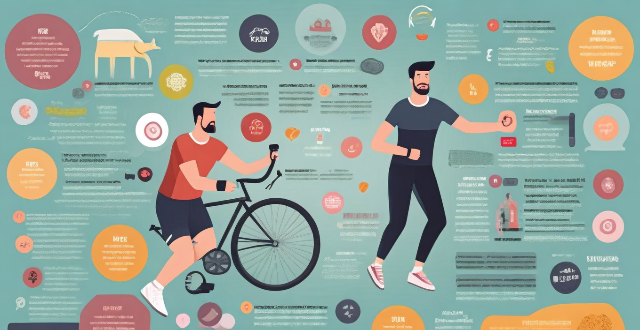
In what ways do sports promote mental and emotional growth in individuals ?
The article discusses the role of sports in promoting mental and emotional growth. It mentions that participating in sports can improve self-esteem, confidence, social skills, resilience, perseverance, time management, organizational skills, and stress reduction techniques. The benefits of sports extend beyond the athletic field and contribute to overall personal development and success in various aspects of life.

What are the benefits of group therapy for women with emotional disorders ?
Group therapy offers numerous benefits for women with emotional disorders, including increased social support, improved self-efficacy, and reduced symptoms of anxiety and depression. This form of treatment can be a powerful tool for promoting healing and personal growth.

How does peer pressure affect the mental and emotional development of adolescents ?
**Peer Pressure and Its Impact on Adolescent Development** Peer pressure significantly influences the beliefs, behaviors, and development of adolescents. Understanding its effects is crucial for promoting healthy growth. **Definition and Nature:** Peer pressure involves social and psychological influences that lead to conformity. It can be positive or negative. **Impact on Mental Health:** Constant peer influence can lead to stress, anxiety, depression, and self-esteem issues. **Effects on Emotional Development:** Adolescents may become dependent on peers, strain familial relationships, and face challenges in developing emotional intelligence. **Long-Term Implications:** Peer pressure can shape adult personality traits, career choices, and interpersonal skills. **Mitigating Negative Effects:** Parents, educators, and mental health professionals should encourage open communication, build resilience, and promote self-awareness among adolescents.
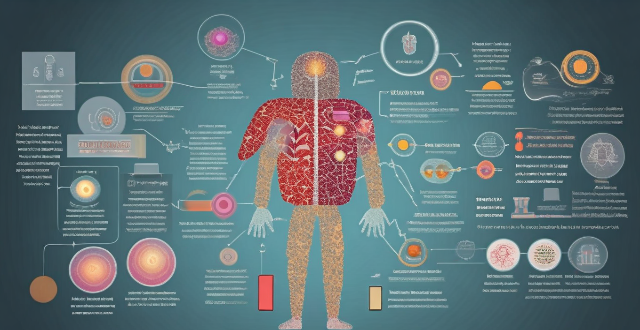
How can we use storytelling techniques to communicate climate science more effectively ?
Storytelling techniques can make climate science more accessible and engaging by creating emotional connections, simplifying complex ideas, humanizing data, and promoting sharing. Effective strategies include using case studies, visual narratives, characters, analogies, and interactive elements to enhance retention and inspire action. By harnessing the power of storytelling, we can foster a deeper understanding and emotional connection to the urgent issue of climate change.

How can I protect my personal information online ?
In today's digital age, protecting your personal information online is crucial. To safeguard sensitive data, one should use strong and unique passwords, keep software and systems up-to-date, be careful with public Wi-Fi networks, be wary of phishing attacks, and limit the amount of personal information shared online. These steps can significantly reduce the risk of having personal information compromised online.

What role does sleep play in maintaining personal health ?
The text discusses the importance of sleep in maintaining personal health, including its roles in physical restoration and repair, energy conservation, weight management, memory consolidation, emotional regulation, cognitive function, stress reduction, mood stabilization, and relationship health. Adequate sleep is crucial for overall well-being, and prioritizing it can support physical, mental, and emotional health.
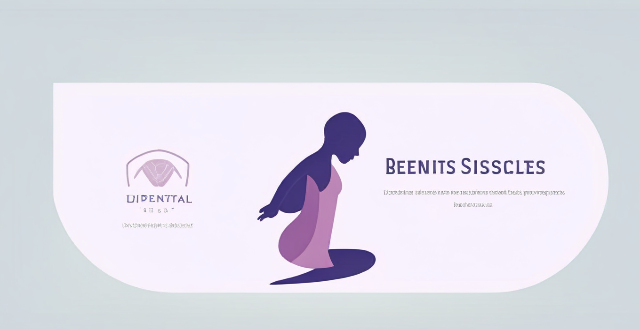
What are the benefits of practicing simple yoga postures regularly ?
The text discusses the benefits of practicing simple yoga postures regularly, including physical health benefits such as improved flexibility and mobility, strengthened muscles, better posture, and increased stamina. It also covers mental and emotional well-being benefits like stress reduction, improved concentration, emotional balance, and mind-body connection. Additionally, the text touches on lifestyle integration, adaptability, and personal growth. Overall, the text emphasizes the positive impact of regular yoga practice on overall health and well-being.

What impact do sports have on the emotional content of a story or poem ?
The impact of sports on emotional content in stories and poems is significant, evoking a range of emotions including joy, sadness, excitement, disappointment, triumph, perseverance, camaraderie, and friendship. Sports can inspire readers with the accomplishments of athletes who win competitions or achieve personal bests, create a sense of excitement and happiness among readers, lead to feelings of disappointment and sadness when an athlete fails to meet their goals or suffers an injury, inspire readers with the resilience and dedication of athletes who overcome injuries or setbacks to achieve success, showcase the importance of friendship and loyalty through teamwork and camaraderie, and evoke feelings of warmth and affection between characters in a story or poem. By incorporating sports into their writing, authors can create compelling narratives that resonate with readers on an emotional level.